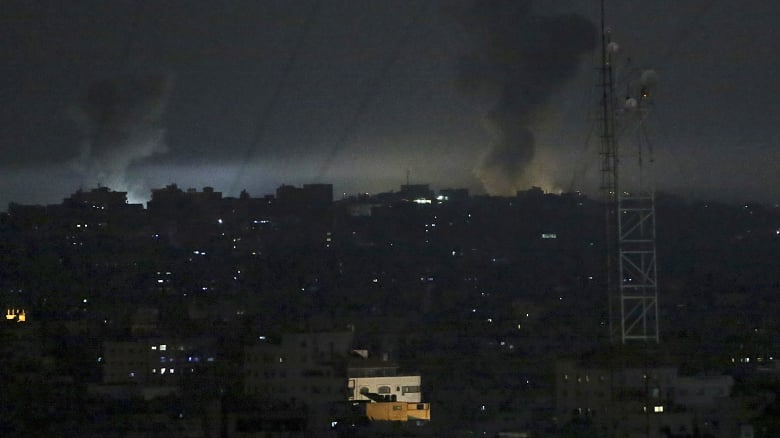Gaza City: Gaza Strip-based militants say they have agreed to a ceasefire with Israel, after a fresh round of hostilities that saw the largest exchange of missiles between the two sides since 2014.
“We are committed to this ceasefire as long as Israel is committed to it,” Dawood Shihab, a spokesman for the Islamic Jihad group, said in an emailed statement, adding that the deal had been worked out with Egyptian mediation.
A less hopefiul note was struck by the Israelis with one official, who declined to be named, saying: “the report about a ceasefire is incorrect”.
Israel earlier said that Gaza-based militants had fired about 70 mortars from the enclave on Tuesday.
Israel responded with more than 30 airstrikes after its Iron Dome missile defense was activated, Israeli army spokesman Jonathan Conricus said.
No Palestinian or Israeli injuries have been reported from the exchange of fire.
The flare-up comes amid ongoing tensions along the Gaza border, with more than 100 Palestinians killed by Israeli forces there in recent weeks.
Israeli Prime Minister Benjamin Netanyahu said his army would react “forcefully” to the dozens of mortars fired at Israel.
“[The Israeli army] will respond with great force to these attacks, and Israel will exact a heavy price from anyone who tries to harm it, and we see Hamas as responsible for preventing these attacks against us,” Netanyahu said in a statement.
Conricus blamed Hamas, the Islamic militant group which rules the Gaza Strip, and Islamic Jihad for the mortar fire, saying they were retaliating for earlier army actions that killed three Islamic Jihad militants.
Hamas is attempting to “turn the border into an active combat zone,” Conricus told reporters.
“Quiet will be met with quiet and hostility and violence will be met with appropriate measures,” he added.
Tuesday was the first mortar fire from Gaza since a new wave of mass protests began there on March 30.
Later Tuesday, a rocket fired by Gaza Strip militants struck a building on Israeli territory key to supplying power to the southern part of the enclave, potentially worsening an already dire energy supply in the zone.
Read the full article written by Saud Abu Ramadan & Eliyahu Kamisher at the Sydney Morning Herald.

